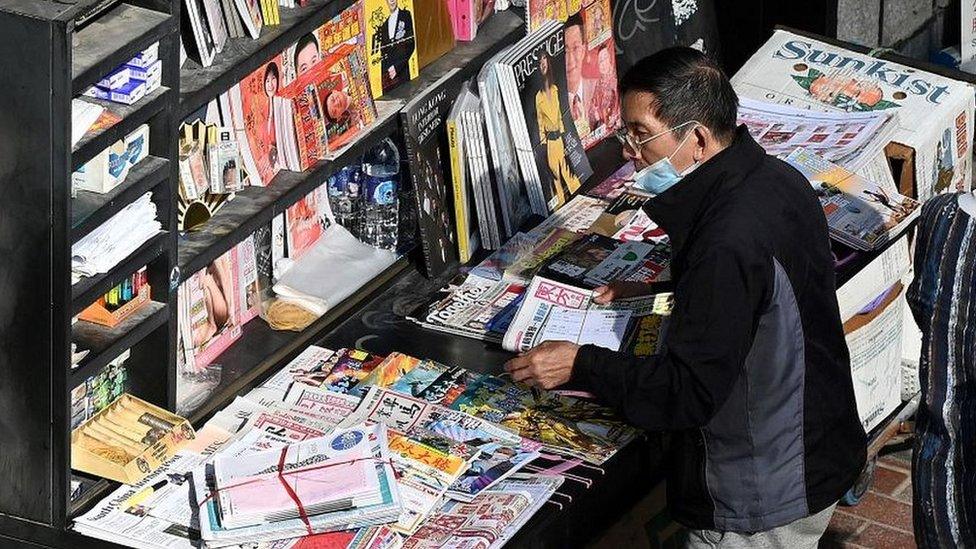Hong Kong media guide
- Published
This page is no longer being updated. It was last updated on 5 September 2023

Hong Kong has one of the world's largest film industries and is a major centre for broadcasting and publishing.
Although press freedom is enshrined in the city's Basic Law, there has been pressure on independent media, especially under the national security law, which China introduced following pro-democracy protests.
US-based NGO Freedom House says the new law "has amounted a multifront attack on the 'one country, two systems' framework" leading to "the closure of political parties, major independent news outlets, peaceful nongovernmental organisations and unions".
It says this has led to "self-censorship among journalists, changes in editorial content, and a rise in mainland-style practices".
Radio Television Hong Kong (RTHK), the territory's public broadcaster, had a reputation for independence but in 2021, the government effectively took control of its output.
In 2022, Hong Kong media tycoon Jimmy Lai - founder of the pro-democracy Apple Daily paper - was jailed for almost six years for fraud. He also faces national security charges. In 2023, he was among the most prominent of the so-called Hong Kong 47 pro-democracy activists on trial for subversion.
There were 6.6 million internet users by July 2022, comprising 92% of the population (Worldinternetstats.com). Chinese platforms WeChat and Sina Weibo are popular, but not as much as WhatsApp and Facebook.
Press/online
South China Morning Post, external - English-language daily
The Standard, external - English-language daily
Ming Pao, external - influential daily
Tung Fang Jih Pao (Oriental Daily), external - widely-read daily
Ta Kung Pao, external and Wen Wei Po, external - managed from Beijing, follow Communist Party line
Wall Street Journal, external - Chinese edition
HK01, external - news site, in Chinese
Hong Kong Free Press, external - news site, in English
Television
Radio-TV Hong Kong (RTHK), external - government-funded
Television Broadcasts (TVB), external - private, terrestrial
Phoenix TV, external - private, multi-channel satellite TV
Sun TV, external - private, via satellite
Radio
Radio-TV Hong Kong (RTHK), external - government-funded, operates seven networks in English, Cantonese, Mandarin
Commercial Radio Hong Kong, external - operates CR1, CR2 networks in Cantonese and mediumwave (AM) station AM 864
Metro Broadcast, external - operates Metro Info, Metro Finance and English-language Metro Plus